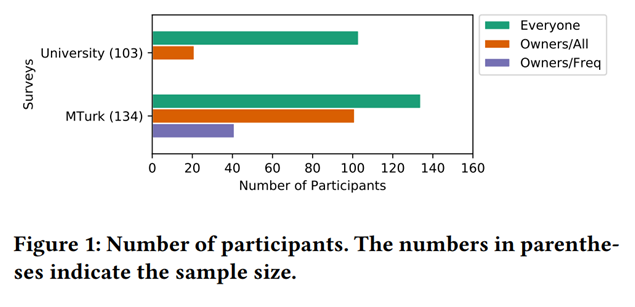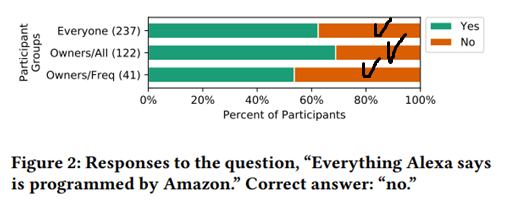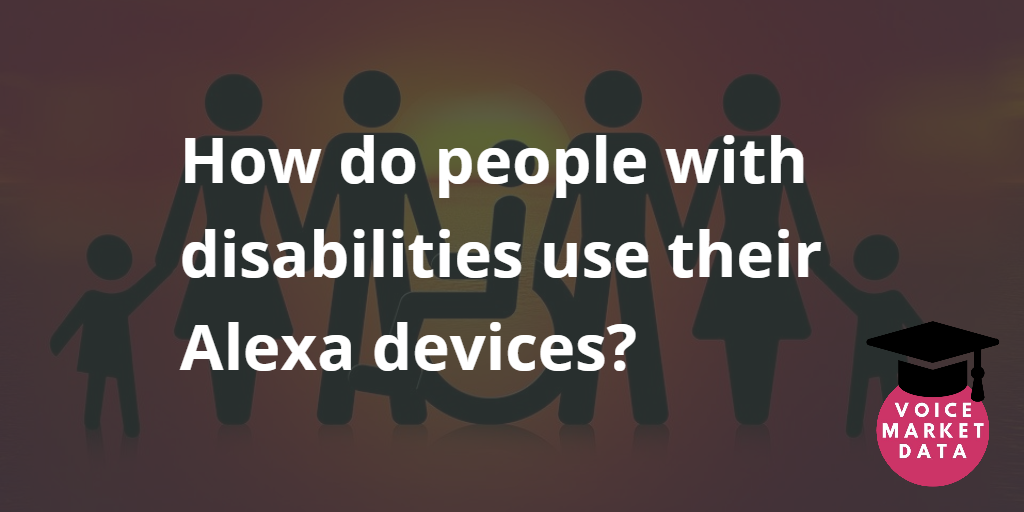TL; DR
???? Many people are unaware that Alexa skills can be developed by third parties.
???? Even when informed that Alexa skills can be developed by third parties, most people could not differentiate between native Alexa functionality and third-party skills, nor between real and fake Alexa system messages. Interestingly, frequent users were even less able to distinguish native from third-party skills.
???? Alexa users often do not understand the standards of how the Alexa system functions nor what is possible and not possible on Alexa
From: Major, D. J., Huang, D. Y., Chetty, M., & Feamster, N. (2019). Alexa, Who Am I Speaking To? Understanding Users’ Ability to Identify Third-Party Apps on Amazon Alexa. arXiv preprint arXiv:1910.14112.
What did they do?
The researchers tested 103 undergraduates and 134 Amazon Mechanical Turk workers between March and May 2019. These participants fit in 3 categories: Owners/Freq, those who owned an Alexa device and used it daily; Owners/All, those who simply own an Alexa device; Everyone, a category that combined those who own an Alexa device with those who do not.

For context of this post, we will be looking at the following questions:
- Do people understand that skills can be from first-party and third-party developers?
- Can people tell when they are using a first-party or third-party skill?
- Do people understand how information is shared between first-party and third-party developers ?
The researchers asks some other questions that you can find in the full article. You can also see the testing materials here.
What did they find?
Even people who often use Alexa devices were not always aware that Alexa skills could be from third-parties.

They then looked at whether people could differentiate between first and third-party skills. With the exception of Jeopardy, people were generally not aware they were using a third-party skill.

They also showed participants two videos:
- 1A: a user asks Alexa to adds a product to their Amazon cart.
- 1B: a user tells a third-party skill their name (Benji).
Afterwards, they asked them questions about who has access to their information. These results suggest that while some people understand the relationship between first and third-party content, a significant portion, even frequent Alexa users, do not.

So what?
The main takeaway from this article is that users, regardless of how often they use their Alexa device, do not always understand that skills can come from third-party developers. There is also a significant lack of understand towards who has access to what users tell their Alexa device. Building a community outside the Alexa ecosystem, like Matchbox.io’s Question of the Day Facebook community, can help differentiate your third-party skills from Amazon and build a distinctive brand. The authors also make the following suggestion to help differentiate third-party and first-party skills:
Alexa could also leverage audio cues, e.g., using different voices for native and third-party skills or playing a chime as a user switches from one skill to another. The fact that 79.7% of participants responded that Jeopardy is a non-native skill suggests that the change from Alexa to Alex Trebek’s voice may have tipped off users.
From: Alexa, Who Am I Speaking To? Understanding Users’ Ability to Identify Third-Party Apps on Amazon Alexa.
Article citation
Major, D. J., Huang, D. Y., Chetty, M., & Feamster, N. (2019). Alexa, Who Am I Speaking To? Understanding Users’ Ability to Identify Third-Party Apps on Amazon Alexa. arXiv preprint arXiv:1910.14112. Read the full article.



